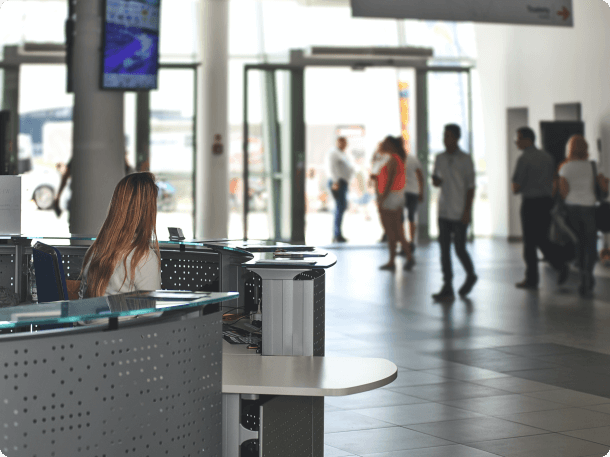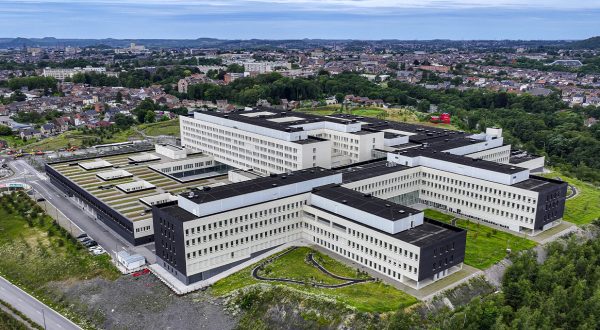Facility Management takes on new role fostering integration into the world of work
Reading time: 5 min
TIM, a company that facilitates integration into the world of work, has been helping the long-term unemployed since 2019 to find sustainable employment while delivering Facility Management services. The experience is a first for VINCI Energies, a shareholder in the company, which is actively involved in the field of occupational integration.

If no one is irreplaceable, then by the same token no one is unemployable. So says TIM, the “social joint venture” initiated in 2019 by VINCI Energies and the Vitamine T group, one of the pioneers and leading providers in France of work programmes(1).
“Social joint ventures are a great way of tackling unemployment and training some of our future employees. They shine a light on the power of collaboration between businesses on the one hand and associations, government services and foundations on the other,” explains Mathieu Alesi, innovation and social entrepreneurship manager of Fondation VINCI pour la Cité.
With support from Fondation VINCI pour la Cité, the two partners chose Facility Management as the field of action for TIM since the sector is dynamic in terms of employment (hospitality managers, hard FM operatives, soft FM officers, etc.) and is sensitive to social responsibility issues.
“VINCI Facilities operations staff expressed a specific wish to be actively involved in social engagement,” explains Baptiste Odin, development manager for Greater Paris at Vitamine T.
“Work programmes are a great way of tackling unemployment and training some of our future employees.”
TIM, which is 51% owned by the Vitamine T group and 49% owned by VINCI Energies, offers “conventional” services in soft FM ‒ meeting room management, mail handling, logistics, PA work ‒ and level 1 and 2 hard FM ‒ electricity, plumbing, metalwork, air conditioning.
Business model
“Like any business, TIM sells services to its clients. What sets us apart is that we receive public subsidies to support our employees in their integration programme. So while TIM must be profitable in order to continue to function, we are committed to injecting all of the profit back into the project for the benefit of our employees,” highlights Adeline Bournisien, TIM business unit manager.
This isn’t Adeline Bournisien’s first entrepreneurial experience. She has already headed up two VINCI Energies business units.
“The only difference compared with a traditional business is that we do everything in our power to ensure ‘dynamic career progression’ for our employees at the end of their integration programme, so that they secure sustainable employment or move onto skills training,” she says.
Employees participating in the TIM integration programme receive no more than 24 months of social and professional support, which is provided outside working hours. A specialist advisor identifies the economic difficulties facing each participant and delivers tailored support aimed at overcoming barriers to employment such as lack of familiarity with the business world, housing or mobility problems, etc. Training programmes are also arranged to help upskill employees.
![]()
TIM won its first two contracts after the spring 2020 lockdown, resulting in the recruitment of the first two employees to the integration programme. One of the employees is responsible for welcoming tennis players to the French Tennis Federation’s Île de Puteaux grounds, and the other is delivering soft FM services for the Pulse building in Saint-Denis under contracts concluded between VINCI Facilities Sports & Partenariats and the French Tennis Federation and Organising Committee of the Paris 2024 Olympic Games.
Overall performance
Beyond the TIM example, a commitment to facilitating integration into the world of work has become a selection criteria in Facility Management tenders. In fact, in some private tenders the issue makes up 5% of the overall award score, and public contracts almost systematically impose an integration clause.
“We’re seeing a change in business vision in the 21st century. We’ve moved from an era of economic performance to overall performance,” comments Bournisien. The prerogative of this new competition is that businesses are looking to be top performers in economic, environmental and indeed social aspects. Corporate social responsibility, which is central to this new strategy, is used as an effective lever for identifying and accurately meeting integration-related requirements. This being the case, what are the indicators of success? Baptiste Odin, from Vitamine T, is convinced that it’s the quality of services which is important: “In future, it’ll no longer be the social aspect that is the main draw, but rather our business expertise.”
(1) In France, the concept is named “Insertion par l’activité économique” (IAE), whereby employment support is provided by specific bodies to people furthest from the labour market with the aim of fostering social inclusion and integration into the world of work. https://www.service-public.fr/particuliers/vosdroits/F2284
15/06/2021


